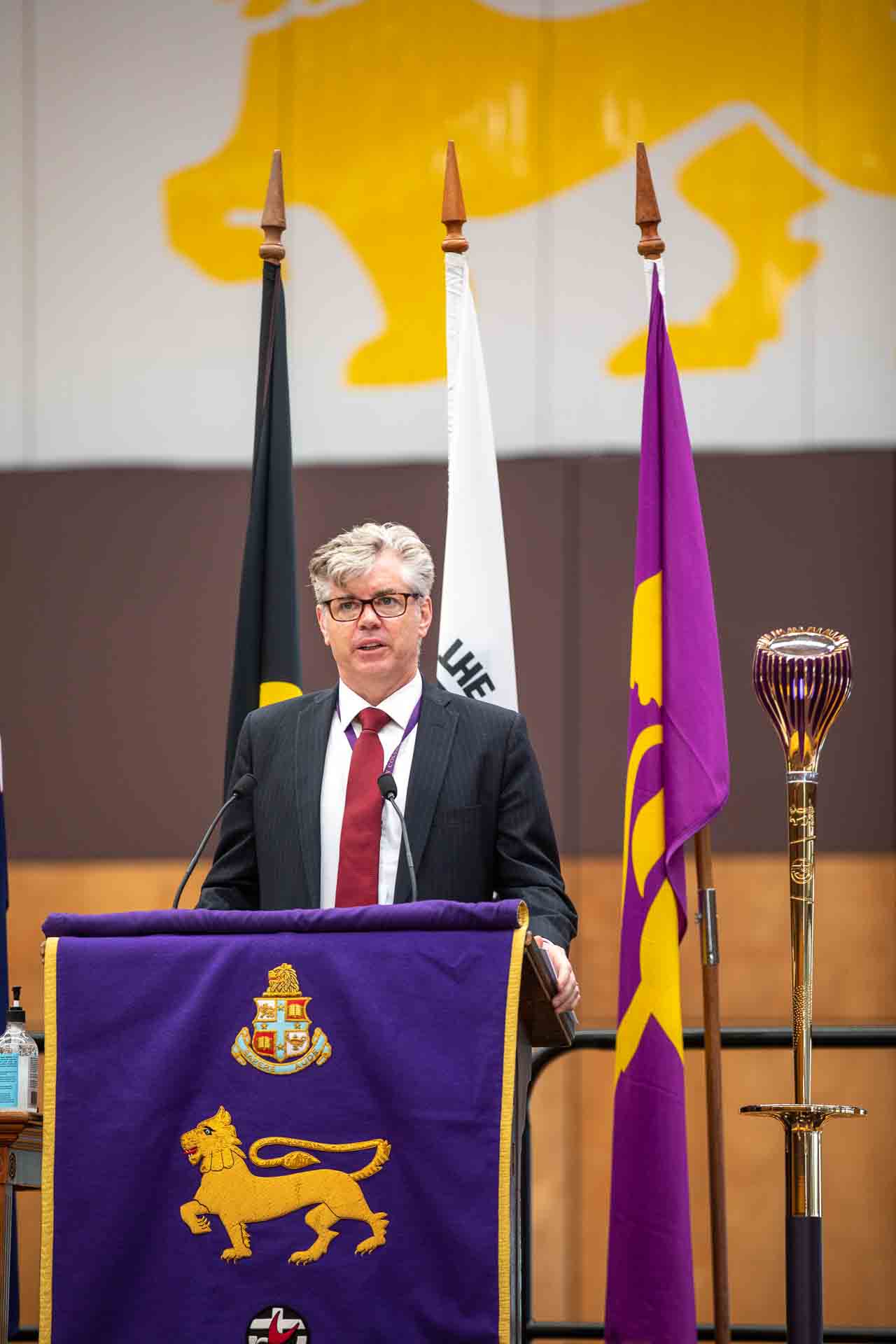<< Back to Lion Homepage
Principal's lines

I am a history nerd. This may come as news to those of you who don’t know me, but it wouldn’t be news to the hundreds of students I taught. I have always been one. I discovered history at the age of nine living in the suburbs of Boston and became obsessed with a series of books on US history that were in the Year 4 classroom. There were months in winter when we weren’t allowed outside because of the snow, and so I sat and read those books. It helped that we were able to visit some of the sites of the American War of Independence that were around Boston and imagine what happened there. Having read those books and also worked my way through the children’s history section of the local library, my imagination was fairly active. There was, apparently, an occasion when my in-depth explanation of the movements of the Minutemen and Redcoats around the bridge at Concord gathered a crowd. The crowd evinced astonishment, but whether this was sparked by the knowledge expressed by a nine-year-old speaking in a funny accent, or the unfortunate plaid trousers I was wearing was unclear. It may have been both.
These days, my nerdiness takes a slightly different tack in all but one respect. Whilst I am very much given to the reading of history – it is still my choice for recreational reading – an increasingly rich genre of historical documentary film has emerged over the past 30 years. The filmmaker who transformed this field, for me at least, is Ken Burns, with his masterpiece The Civil War. Taking as his topic the American Civil War in the 19th century, he constructed this film almost entirely out of static, black and white images and actors reading diaries, letters and newspaper articles from the time. It is an astonishing film. Its genius is that it allows all of us to imagine what it was like to live through the Civil War. Its creativity is in the creation of empathy, in its representing the Civil War as not just as an abstract historical event but as something that happened to people. Something that affected real lives. Something that was experienced, that was lived.
It is easier, of course, to achieve this when moving images are involved and when those images are in colour. There is a magnificent documentary of Apollo 11, the mission that first took men to land on the moon, currently available via one or other of the streaming services. This was an event that occurred in my lifetime. But to watch the crowds at the launch was to get a sense of a very different time and place. What was very clear is that the crowd knew they were a witness to history. The astronauts themselves seemed aware of this. The look on their faces, as they were suiting up in preparation for the boarding of the Saturn V rocket, will stick with me. It was a combination of anticipation and fear - an intensely human moment. These were men about to undergo an extraordinary experience. To watch this film is to get a sense of them living through history.
Most of us won’t experience going to the moon. But we will, all of us, live through history. Personally, I have always hoped that the history I lived through would not be too dramatic. History tends to remember the fraught moments. It wasn’t a coincidence that Burns focused on the most disastrous war in US history. But we are all living through it now. This pandemic will be written about and remembered. It will have long-term effects. What these will be, we simply don’t know. But we will have lived through it.
In a recent address to the Class of 2021, I charged them to take this experience and turn it into something. It has curtailed some years of their lives, but it hasn’t curtailed their lives in total. Some good will come from this if young people use this experience and this moment to think about what they want the world to be, what they want their life to be. They have received a lesson that the modern world, particularly the world in privileged countries such as Australia, was in danger of forgetting. It is that life is not always fair. I believe the experience young people have endured will result in a generation more resilient than most, that in surviving the slings and arrows of outrageous fortune they will be stronger for it, and more able to withstand the weft and warp of life. Their generation will have huge problems to solve. They have seen firsthand that there are problems that cannot be wished away.
We will all benefit from this in the future.
Nick Evans (OW1985)